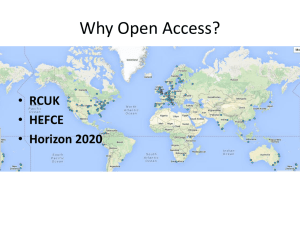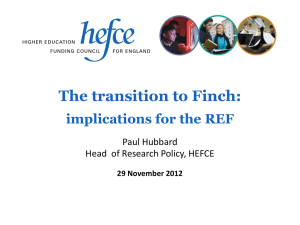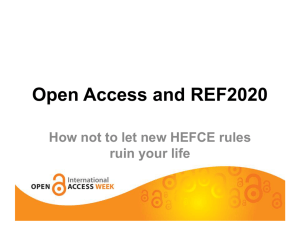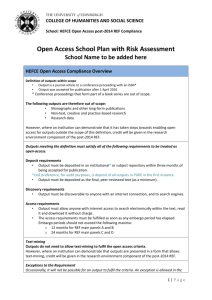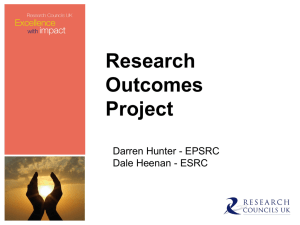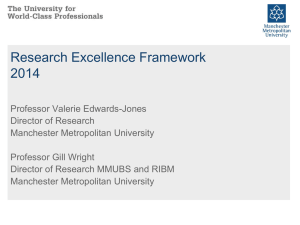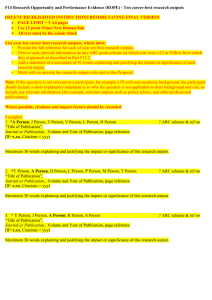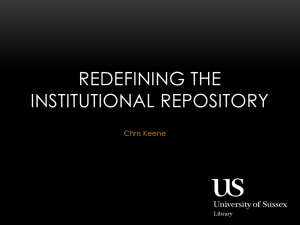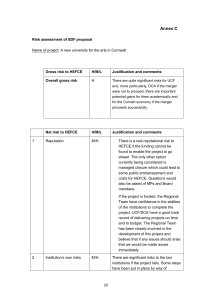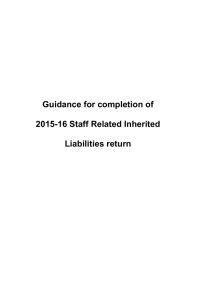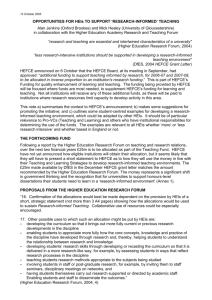here - Open Access at Oxford
advertisement
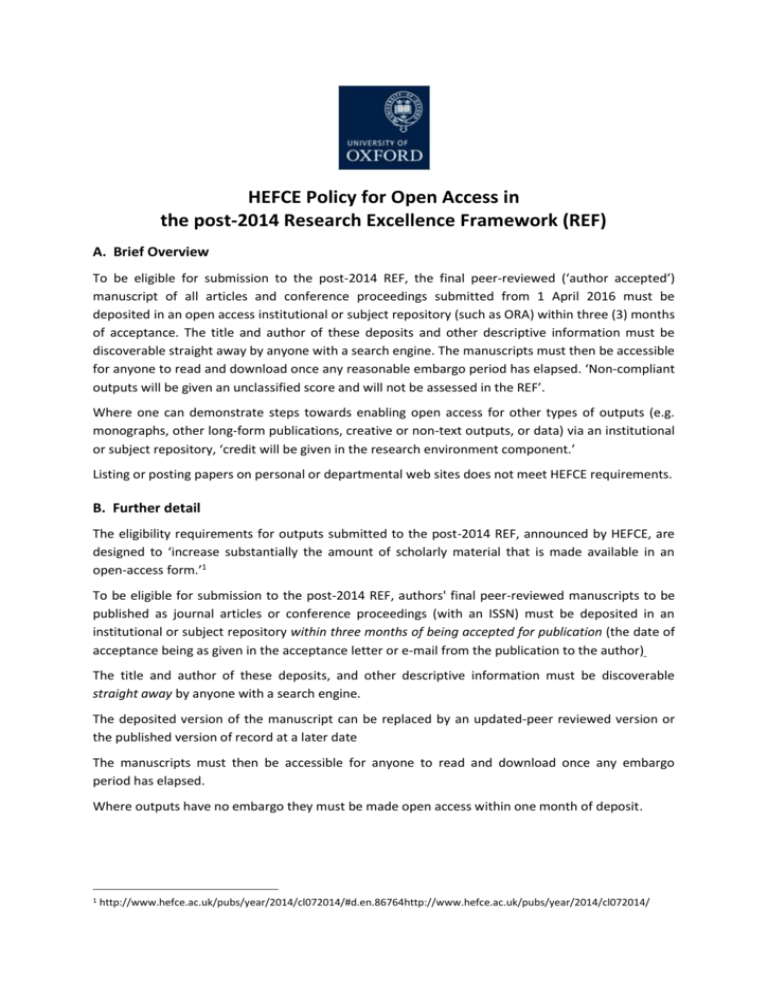
HEFCE Policy for Open Access in the post-2014 Research Excellence Framework (REF) A. Brief Overview To be eligible for submission to the post-2014 REF, the final peer-reviewed (‘author accepted’) manuscript of all articles and conference proceedings submitted from 1 April 2016 must be deposited in an open access institutional or subject repository (such as ORA) within three (3) months of acceptance. The title and author of these deposits and other descriptive information must be discoverable straight away by anyone with a search engine. The manuscripts must then be accessible for anyone to read and download once any reasonable embargo period has elapsed. ‘Non-compliant outputs will be given an unclassified score and will not be assessed in the REF’. Where one can demonstrate steps towards enabling open access for other types of outputs (e.g. monographs, other long-form publications, creative or non-text outputs, or data) via an institutional or subject repository, ‘credit will be given in the research environment component.’ Listing or posting papers on personal or departmental web sites does not meet HEFCE requirements. B. Further detail The eligibility requirements for outputs submitted to the post-2014 REF, announced by HEFCE, are designed to ‘increase substantially the amount of scholarly material that is made available in an open-access form.’1 To be eligible for submission to the post-2014 REF, authors' final peer-reviewed manuscripts to be published as journal articles or conference proceedings (with an ISSN) must be deposited in an institutional or subject repository within three months of being accepted for publication (the date of acceptance being as given in the acceptance letter or e-mail from the publication to the author) The title and author of these deposits, and other descriptive information must be discoverable straight away by anyone with a search engine. The deposited version of the manuscript can be replaced by an updated-peer reviewed version or the published version of record at a later date The manuscripts must then be accessible for anyone to read and download once any embargo period has elapsed. Where outputs have no embargo they must be made open access within one month of deposit. 1 http://www.hefce.ac.uk/pubs/year/2014/cl072014/#d.en.86764http://www.hefce.ac.uk/pubs/year/2014/cl072014/ For outputs with embargo periods, those periods should not exceed the following: 12 months for REF Main Panel A and REF Main Panel B 24 months for REF Main Panel C and REF Main Panel D The policy applies to research outputs accepted for publication after 1 April 2016, but HEFCE is urging institutions to implement it with immediate effect. Where a University can demonstrate that it has taken steps towards enabling open access for other types of outputs, ‘credit will be given in the research environment component.’2 HEFCE officers have advised that they would ‘like to reward institutions that can achieve early compliance.’3 Listing or posting papers on personal or departmental web sites does not meet HEFCE requirements. HEFCE has set out exceptions – these include (but are not limited to) a. Deposit exceptions The individual whose output is being submitted to the REF was not employed by a UK HEI at the time of submission for publication. It would be unlawful to deposit, or request the deposit of, the output or present a security risk. b. Access exceptions The publication concerned requires an embargo period that exceeds the stated maxima, and was the most appropriate publication for the output. The publication concerned actively disallows open-access deposit in a repository, and was the most appropriate publication for the output. Licencing HEFCE do not specify which licence should be used in making outputs available but advise that any outputs licensed under a Creative Commons Attribution Non-Commercial Non-Derivative (CC BY-NCND) licence (Note) would meet the requirements of the policy. Text mining Although outputs do not need to allow for text mining to meet the requirements of the policy, where a University can demonstrate that outputs are presented in a form that allows re-use of the work, including via text-mining, credit will be given in the research environment component. C. Links to further information 2 HEFCE Open access in the post-2014 Research Excellence Framework Circular Letter HEFCE Policy for open access in the post-2014 Research Excellence Framework See http://www.hefce.ac.uk/whatwedo/rsrch/rinfrastruct/oa/policy/ 17 June email from Ben Johnson, HEFCE, to Glenn Swafford, Oxford. Ben added ‘we haven’t worked out the finer details of this yet. We’ll have more to say when we publish FAQs on our website in the early part of next month.’ 3
